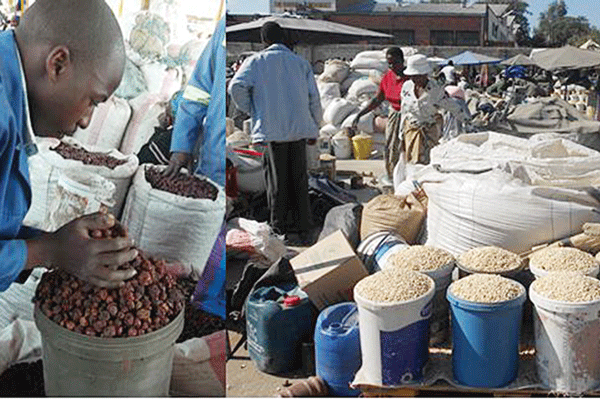
While a lot of resources continue to go into African agriculture, those supporting the sector are still to figure out at what point they will be sure to have made a difference through agriculture. To what extent can increasing yield per hectare or kilogrammes of meat per feed or litres of milk per feed or dozens of eggs per chicken feed provide enough proof that we are changing lives through agriculture? Some economists are beginning to suggest that African agriculture can start making a difference when smallholder farmers start earning at least $90 to $200 per month from their agricultural activities.
CHARLES DHEWA
At the moment most African smallholder farmers are stuck in activities that give them less than $10/month. For example, some farmers in Gokwe district of Zimbabwe have been persuaded to dance with a crop called Sesame, which barely gives them enough to meet their household needs. Why should an expensively trained economist be proud to supervise a programme that gives farmers less than $10/month? Ideally, farmers should be able to meet their income and health outcomes from their agricultural activities.
External factors also influence the extent to which agriculture can make a difference to livelihoods. One of the factors is consumer population. You can only do so much within a small population because it sets the boundaries around which you can innovate for a particular demand. The majority of African smallholder farmers are competing for small populations of consumers whose disposable incomes are erratic. Large African cities like Cairo and Lagos have more than 12 million people each, close to the population of a whole country like Zimbabwe whose population is around 13 million. It means Lagos alone can offer the same size of market for agricultural commodities as the whole of Zimbabwe.
How the export market is not a stroll in the park
Getting into the export market makes a lot of sense for many African farmers. However, export markets demand a much tougher proposition and sophisticated mindset. Collecting mangoes from scattered households and bulking them is a tough call. Evidence and knowledge are critical for a good investment judgment. While tonnes of sweet potatoes are required in Europe, a lot more discipline and social mobilisation is required to aggregate such commodities for foreign markets. Agriculture is a sparsely distributed activity and requires distributed management. There is no money that lies in a busy street. You need others to succeed and have to sweat for real money and profit.
Unfortunately, too many fragmented agricultural interventions are not backed by evidence. There are cases where development partners have invested hoping that the private sector would take advantage, but that has not happened maybe due to lack of readiness or capability. On the other hand, most big institutions are not reaching out, preferring to stay distant from ordinary people’s socio-economic action. While top down approaches have not always worked, bottom up approaches have also been found wanting. That is why brokers are critical. Success comes from taking into account many factors including people’s capacity of meeting their social needs, not just income.
Pulling together knowledge along value chains
- Chamisa under fire over US$120K donation
- Mavhunga puts DeMbare into Chibuku quarterfinals
- Pension funds bet on Cabora Bassa oilfields
- Councils defy govt fire tender directive
Keep Reading
Making sense of agriculture goes beyond characterising farmers, but understanding commodities from production all the way to marketing and several value addition processes. Important elements include knowledge, skills base, information access, technology, natural resources, individual resources/income and markets. At all nodes of value chain actors, there is need for consolidation of knowledge instead of building knowledge from scratch. Knowledge already exists at producer level, market level (traders). Processors and Small to Medium Enterprises have raw knowledge still to be understood. This knowledge is supported by that from the production side. How can this knowledge be pulled together to inform models? Tracking volumes into markets provides a framework for building consumption patterns. This path connects with prices so that it becomes possible to understand which 10 commodities were moving together and competing in the market and which one disturbed tomatoes on its entrance for the past six months.
Seeing the market as an ecosystem
Farmers and all value chain actors should broaden their view of agricultural competitors and opportunities. That will enable them to see markets as fast-moving ecosystems in which they should be able to identify new sources of value. A critical part of understanding agricultural ecosystems is following the data which are becoming the coins of the realm. Competing effectively means collecting large amounts of data and developing capabilities for storing, processing and translating the data into actionable agribusiness insights. Data diversity is a real source of value as opposed to relying on narrow pools of data which hinder finer micro-segmentation in the whole ecosystem.
Better data can support analytically-driven scenario planning and inform how ecosystems will evolve. For instance, data enables informal markets to become superior at interpreting the integrated nature of agriculture and nutrition. Without data, it is easy for value chain actors like financial institutions to become irrelevant. Instead of meeting entrepreneurs where they are, financial institutions will continue changing labels and recycling models. For instance, most conventional lending models force women and youths into chicken projects and cross-border trading instead of meaningful and innovative enterprises. Funding innovation is one way of unlocking dormant potential in most of our communities and build trans-generational businesses in ways that tap into reservoirs of soft knowledge that have made other economies grow.
[email protected]/[email protected]/[email protected] Website: www.emkambo.co.zw / www.knowledgetransafrica.com eMkambo Call Centre: 0771 859000-5/ 0716 331140-5 / 0739 866 343-6











